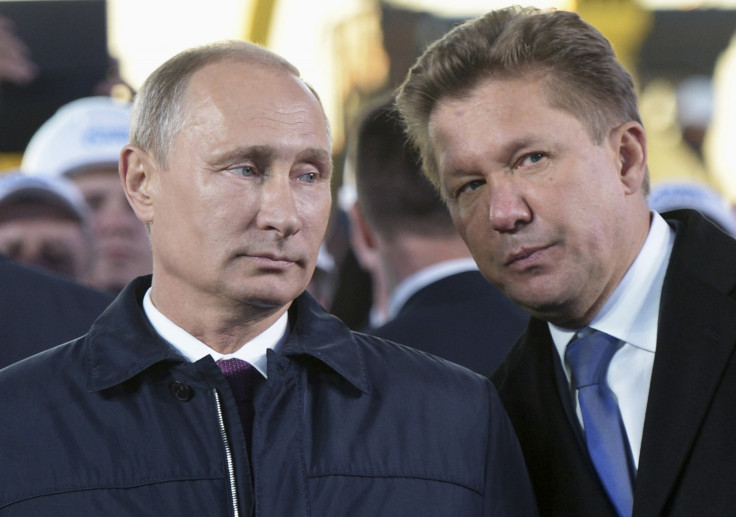Doubts Over Gazprom's Mega Gas Deal With China as Pipeline Construction Begins

Russia's landmark multibillion dollar gas deal with China could leave Moscow out of pocket, according to a new report.
The thirty-year deal, signed in May, is worth a total of $400bn (£246bn, €309bn) and marked one of the biggest gas deals in history.
Construction of the new pipeline that will stretch from China to Russia's far east began on September 1.
The deal will see Russia's state-controlled energy giant Gazprom supplying China with around 38 billion cubic metres (bcm) per year, starting in 2019.
Yet, the agreement has raised questions over the profitability of the contract for Gazprom, according to geopolitical experts.
"Moscow is said to have offered Beijing several changes to its energy tax, a stake in Gazprom's Vladivostock LNG terminal and a 19% stake in Russia's oil company Rosneft," said Frank Umbach, in a new report for Geopolitical Information Service.
"The tax break could cost Russia's state budget an estimated $30bn in revenue over the contract period," he wrote.
Moreover, Gazprom may require a price of at least $440 per 1,000 cubic metres to make the deal profitable, experts have warned. That would be much higher than the average European gas price of $385 per 1,000 cubic metres and analysts have said it is unlikely Gazprom will achieve such a price.
"Many of the contract details – including the real price China is paying for Russian gas – remain vague or are unknown. But China has agreed to pre-pay $25bn before gas supplies begin and will invest another $20bn directly. Gazprom could not start pipeline construction without this loan," he wrote.
The China-Russia gas deal has been flagged as a threat to the West. It was agreed at a time of worsening relations between Russia and the West over the Ukraine crisis, where Russia has been accused of providing manpower and weapons to the separatist rebels in eastern Ukraine.
The United States and the European Union have entered a standoff with Moscow over its role in the crisis, leading to economic sanctions being imposed by both sides.
The US and EU are currently considering tightening those sanctions further, in a move that could restrict international oil companies' ability to work on projects in Russia's Arctic territory.
However, the European gas market had already been in decline since the Eurozone recession took hold, while the bloc has also committed to sourcing renewable energy.
Moreover, the shale gas revolution in the US and potentially around the world has established an alternative energy source that could impact on price and demand for Russian gas in the coming years, making the China deal more pressing for the Kremlin.
© Copyright IBTimes 2025. All rights reserved.






















